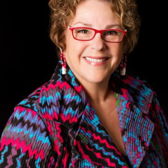
Working with Children with Sexual Behavior Problems: Utilizing Play Therapy and other Expressive Approaches
More and more, parents and colleagues are reaching out to clinicians to discuss situations that involve young children involved in sexual acting-out behavior.
This topic has remained challenging for many professionals who remain uncertain about what is normative sexual development, how to assess whether children are being curious or need help, and under what circumstances the child might be in need of a higher level of care. In addition, many mental health professionals have been trained on the impact of trauma on young children, but seem reluctant to take cases in which children are behaving in sexually inappropriate ways. Our typical clinical training has not prepared us to talk to children about their sexuality and help parents manage their children’s behavior.
Parents have a broad range of reactions when encountering their children’s sexual acting out. They may feel horrified, disgusted, or shocked, or conversely, they may minimize, ignore, or look away from behaviors they don’t understand. More often than not, the behavior is not addressed, and parents hope that it just dissipates. However, this rarely happens.
Mental health practitioners need to feel confident in assessing family situations, providing guidelines for how to proceed, and explaining a solid treatment plan designed to address the family situation. Because it is a family problem, we encourage the participation of parents from the outset. Special attention will be placed on assessment and treatment sensitivity and flexibility regarding gender differences, racial biases, homophobia, and cross-cultural family dynamics.Special attention will be placed on assessment and treatment sensitivity and flexibility regarding gender differences, racial biases, homophobia, and cross-cultural family dynamics.
Featured Speaker
